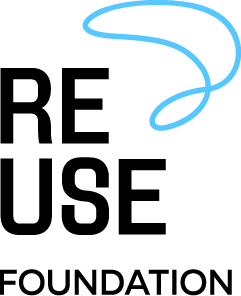Featured
GROWING SUPPORT FOR REUSE FOUNDATION |
|
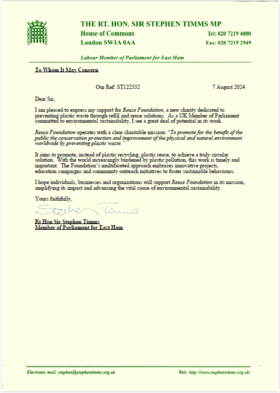
|
REUSE Foundation is a new charity but we’re already getting some great support, including some heavyweight hitters.
In a letter, Rt Hon Sir Stephen Timms, Member of Parliament and Government Minister highlights how “REUSE Foundation operates with a clear charitable mission: ‘To promote for the benefit of the public the conservation protection and improvement of the physical and natural environment worldwide by preventing plastic waste’.” He added that “With the world increasingly burdened by plastic pollution, this work is timely and important. The Foundation’s multifaceted approach embraces innovative projects, education campaigns and community outreach initiatives to foster sustainable behaviours. I hope individuals, businesses and organizations will support REUSE Foundation in its mission, amplifying its impact and advancing the vital cause of environmental sustainability.” We also received a letter of support from Siân Berry MP of the Green Party, who said “I am delighted to have been introduced to the REUSE Foundation, a newly established charity focused on reducing plastic waste through refill and reuse initiatives. As a member of parliament dedicated to environmental sustainability, I recognise the critical importance of these efforts and fully support the impactful work of this organisation.” She also said: “I urge individuals, businesses and organisations to support REUSE Foundation's mission. Your contribution and participation will be vital in expanding its reach and enhancing its positive impact on our environment.” REUSE Foundation seeks broad support to pursue its goals of preventing plastic waste and welcome your involvement. Please get in touch and keep in touch by subscribing to our newsletter.[Image Credit: © REUSE Foundation] |
Highlights
Colgate, Watsons Launch Initiative To Combat Plastic Waste |
|
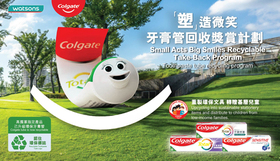
|
Colgate and Watsons Hong Kong launched the "Small Act-Big Smiles" initiative, allowing consumers to drop off used toothpaste tubes, from any brand, at nearly 180 Watsons locations. After sorting, tubes suitable for recycling are made into “useful products” by Colgate’s partners. Incentives like double MoneyBack points and vouchers aim to boost participation. [Image Credit: © ACCESSWIRE]
|
Unilever Cites Investment Towards Ending Plastic Pollution |
|
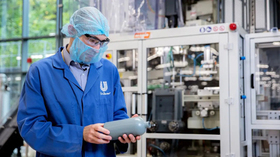
|
Unilever says it aims to eradicate plastic pollution through enhanced material science, collaboration and innovative packaging solutions at its Global Packaging R&D Centre in Port Sunlight. Doubling its investment in technology, the company is incorporating more post-consumer recycled plastic and overcoming technical challenges to ensure quality and appearance. Unilever says it is also focused on creating flexible packaging that is recyclable or compostable by 2035, exploring alternative materials like paper while addressing barrier protection challenges. [Image Credit: © Unilever]
|
UK Supermarkets Most Reliant On Plastic Packaging |
|

|
A recent DS Smith study shows UK supermarkets are more reliant on plastic packaging than those in France, Germany, Italy, Poland and Spain, with 51 percent of food and drink products wrapped in unnecessary plastic. The UK generates nearly 30 billion avoidable pieces of plastic annually. Processed foods and dairy are among the primary sources of plastic waste. DS Smith urges stronger government action to phase out plastic and support fiber-based solutions, highlighting the need for regulatory backing and incentives for businesses to innovate and reduce plastic usage.[Image Credit: © DS Smith]
|
WRAP UK Proposes Fresh Produce Packaging Ban To Cut Plastic Waste |
|
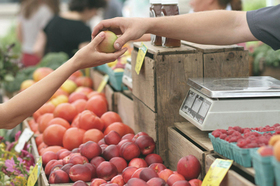
|
WRAP says the UK government should restrict packaging on uncut fresh fruit and vegetables to reduce single-use plastic, food waste and carbon emissions. Nearly three-quarters of UK household food waste comes from homes, with fresh produce a significant contributor. Around 70,000 tonnes of single-use plastic packaging is used annually for fruit and vegetables. WRAP’s voluntary initiative, which calls for 50 percent of uncut fresh produce to be sold loose by 2030, faces challenges, prompting calls for formal policy. [Image Credit: © Erik Scheel from Pexels]
|
Kenvue’s Innovative Packaging Reduces Plastic Waste, Promotes Refills |
|
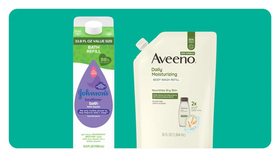
|
Kenvue says it is committed to reducing plastic waste through sustainable packaging innovations across its brands. Neutrogena participates in the Target Zero initiative, offering products like the Hydro Boost Cleansing Gel Refill, which uses 30 percent recycled plastic and reduces plastic waste by 83 percent versus the 7.8oz. bottle. Over 80 percent of Aveeno bottles are now recyclable and the brand pledges to reduce virgin plastic by 25 percent by 2025. Refill options like the Aveeno Daily Moisturizing Body Wash offer significant plastic savings. Johnson’s has also embraced eco-friendly packaging, such as refillable options that use 88 percent less plastic. [Image Credit: © Kenvue]
|
Colgate, Amazon Harnessing AI To Improve Plastic Recycling |
|
.png?width=280)
|
At the recent Packaging Recycling Summit, the spotlight was on the critical role of data in recycling processes, particularly artificial intelligence. Rebecca Hu, CEO of Glacier, highlighted how AI technology is transforming recycling practices for companies like Colgate-Palmolive and Amazon. Colgate’s transition to a recyclable HDPE toothpaste tube is a prime example, with AI being used to track and sort tubes in material recovery facilities. Amazon collaborates with Glacier to analyze bioplastic packaging, aiming to improve recyclability and packaging design. [Image Credit: © Colgate-Palmolive Company]
|
Indonesia’s Plastic Waste Reduction Pilot Promotes Refillable Packaging |
|
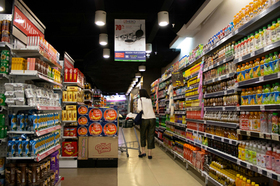
|
PISCES, a pilot project in Banyuwangi, East Java, led by Brunel University and Enviu, introduced reusable refillable packaging to tackle Indonesia’s plastic waste crisis, and especially single-use sachets. It worked with local communities, shops and factories to design eco-friendly alternatives and the project reported strong community adoption. It’s now expanding to other regions, including Bali, and seeks further funding and partnerships to scale the project and promote sustainable waste management nationwide.[Image Credit: © Hobi industry from Pexels]
|
Activists Demand Unilever Address Plastic Pollution Crisis |
|

|
Greenpeace Africa activists and community members protested outside Unilever’s headquarters in Durban, condemning the company's role in plastic pollution across the continent. Demonstrators displayed Unilever-branded plastic waste to highlight the disparity between the corporation's profits and the environmental toll on marginalized communities. Hellen Kahaso Dena, Project Lead for the Pan-African Plastics Project, emphasized Unilever’s profits while waste pickers bear the brunt of plastic pollution. The protest called for Unilever to reduce its reliance on single-use plastics, particularly sachets, and invest in refill and reuse systems. [Image Credit: © Greenpeace International]
|
Recycle Week Highlights UK’s Need To Reduce Plastic Waste |
|
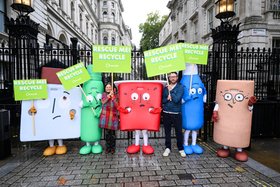
|
UK households discard over nine billion recyclable items annually. Recycle Week, led by WRAP and ambassador JJ Chalmers, urges the public to "rescue" recyclable packaging. Although 88 percent of people recycle, about 80 percent still bin some recyclable items. This year's campaign calls for stronger recycling efforts to move the UK toward a circular, zero-waste economy and stresses the importance of checking packaging labels. The UK’s most discarded items include 7.4 billion yoghurt pots, 845 million cleaning product bottles and 526 million aerosols. [Image Credit: © Waste and Resources Action Programme]
|
Clorox Reassesses Plastic Waste Goals After Cyberattack Disruptions |
|
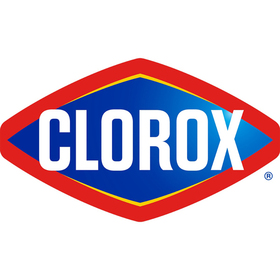
|
Clorox is reassessing its sustainability goals, including plastic waste reduction, blaming disruptions from a major cyberattack in August 2023, which cost the company $49 million. Clorox cited challenges such as limited recycling infrastructure and access to high-quality recycled plastic. Despite setbacks, the company remains committed to reducing virgin plastic use and expanding sustainable packaging innovations, like Pine-Sol concentrates in 50% PCR bottles. Clorox anticipates increased costs for PCR content and compliance with extended producer responsibility regulations, but it continues to integrate sustainability across its product lines while reassessing its long-term goals.[Image Credit: © The Clorox Company]
|
SC Johnson Faces Questions About Commitment To Reduce Plastic Waste |
|
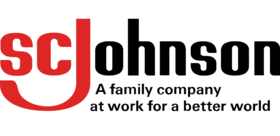
|
Fisk Johnson, CEO of SC Johnson, aims to tackle the global plastic waste crisis while leading a major consumer goods company that heavily relies on plastic packaging. Johnson calls for a collaborative industry effort to develop recycling solutions and demands legislation that holds companies accountable for their plastic footprint. Critics question SC Johnson’s commitment to plastic waste reduction, citing the company’s reliance on plastic, but Johnson points to sustainable packaging like Windex bottles from recovered coastal plastic. [Image Credit: © SC Johnson/PRNewswire]
|
UK Trade Bodies Defend Stance On EPR Delay |
|
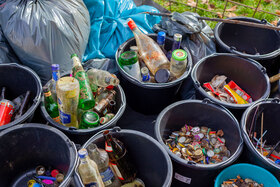
|
Responding to criticism that industry lobbied for the UK’s Extended Producer Responsibility for packaging scheme to be delayed, The Food and Drink Federation said it takes its sustainability commitments “incredibly seriously”, has for years been working with Government on a “transformational EPR scheme” and that the Government’s decision to defer the start was because the scheme’s not ready for launch in the original timeframe. Another trade body, INCPEN, said that meetings with Government in 2023 were “more innocuous than portrayed” and that to “it was obvious in spring 2023 that the EPR reforms were not in a sufficient state of preparedness” for a ‘go-live’ in. Andrew Opie from the British Retail Consortium said “customers and businesses will pay for these improvements through increased costs which is why it is essential EPR delivers a step change in recycling that justifies its £2 billion a year cost.”[Image Credit: © Jasmin Sessler via Unsplash]
|
Call For Urgent Action On Packaging Waste In Australia |
|
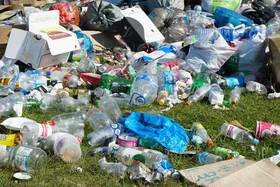
|
In Australia, Boomerang Alliance, a coalition of 55 NGOs, urges swift government action on the nation’s packaging waste, particularly soft plastics. Despite 25 years of voluntary effort, only 20 percent of plastic packaging is recycled, far from the 2025 target. Boomerang Alliance is calling for a mandatory Product Stewardship model, where producers are legally responsible for packaging waste, similar to European models. They propose fast-tracking soft plastic recycling schemes and setting national targets for reduction, reuse and recycling. [Image Credit: © Ariungoo Batzorig on Unsplash]
|
UK Packaging Tax Delayed Amid Industry Lobbying Concerns |
|
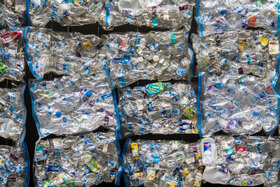
|
According to an article in The Guardian, lobbyists for major UK food brands successfully delayed a £1.7 billion packaging tax aimed at improving recycling rates and tackling plastic waste. Originally set for this year, the Extended Producer Responsibility scheme would have shifted waste management costs to companies based on their packaging use. Industry representatives lobbied the previous Conservative Government to defer legislation, citing concerns over cost and the impact on consumer prices. Critics, including Greenpeace, argue that Government indecision is exacerbating the plastic pollution crisis and, along with other environmental bodies, urge the current Government to resist lobbyist pressure and implement a robust EPR scheme.[Image Credit: © Nick Fewings on Unsplash]
|
Slow Progress On Plastic Waste Circularity Goals |
|
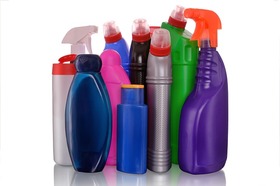
|
Efforts to reduce plastic waste through circular economy strategies are stalling, according to BloombergNEF’s 2024 Circular Economy Company Ranking. While top companies like Coca-Cola and L’Oréal lead in sustainable packaging, many are struggling to meet targets for recycled content, citing supply shortages and inadequate recycling infrastructure. This has led some, like PepsiCo and Unilever, to delay commitments. Producers are hoping chemical recycling will help them meet targets, relying on announced capacity by 2030 being available. [Image Credit: © Dmitriy from Pixabay]
|
UK Supermarkets Promote Misleading Soft Plastic Recycling Schemes |
|
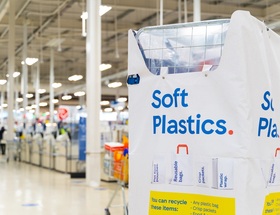
|
Tesco and Sainsbury’s are accused of misleading customers about their soft plastic take-back schemes after an investigation revealed 70 percent of the tracked plastic collected was incinerated rather than recycled. Environmental groups like ClientEarth claim the schemes give a false impression of effective recycling. Both supermarkets defended their efforts, citing challenges in recycling soiled or damaged plastics. Tesco emphasized its commitment to reducing, reusing and recycling packaging; Sainsbury's pledged to improve signage and transparency. Industry experts noted that UK recycling infrastructure for flexible plastics is still developing, with significant improvements expected by 2027 when councils begin kerbside collections of these types of plastic. [Image Credit: © Tescoplc.com]
|
Henkel's Eco-Friendly Laundry Detergent Packaging Reduces Plastic Waste |
|
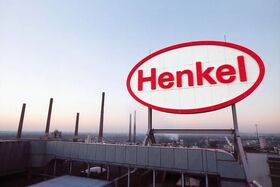
|
Henkel introduced new laundry detergent packaging made from mono-material films containing 30 percent post-consumer recycled content, developed in collaboration with Korozo Group and Borealis Group’s Ecoplast unit. It complies with the upcoming EU Packaging and Packaging Waste Regulation, which mandates minimum recycled content and recyclability standards for plastic packaging. Use of LDPE recycled materials, certified for traceability, ensures high optical quality and durability. With this initiative, Henkel hopes to enhance sustainability in its product lines, such as Persil, while addressing consumer demand for environmentally friendly options. [Image Credit: © Henkel AG & Co. KGaA]
|
California Sues ExxonMobil Over Plastic Pollution Deception |
|

|
California's Attorney General, Rob Bonta, filed a lawsuit against ExxonMobil, accusing the company of misleading the public for decades about the recyclability of plastics. It claims ExxonMobil falsely promoted recycling as a solution to the plastic waste crisis, causing increased consumption of single-use plastics. Despite claims of "advanced recycling" technologies, only around 5 percent of plastic waste is actually recycled in the US. Through a trade group, ExxonMobil was behind a 1989 12-page editorial-style ad in Time magazine that claimed recycling was the best solution to plastic waste, calling for recycling technology and infrastructure. For 50 years, the trade group has promoted the chasing arrows symbol, which still misleads consumers into thinking items bearing the symbol can and will be recycled. The state seeks penalties and funding to mitigate the environmental damage caused by ExxonMobil’s practices.[Image Credit: © Exxon Mobil Corporation]
|
UK Reusable Packaging Initiative Expands To Combat Plastic Waste |
|
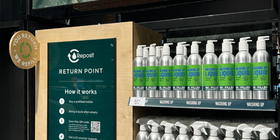
|
Reposit’s returnable packaging scheme, backed by M&S, Ecover and City to Sea, is expanding across the UK. Launched in 2023 with support from UK Research & Innovation’s Smart Sustainable Plastic Packaging Fund, the program promotes a "buy anywhere, return anywhere" system that enables customers to return packaging for reuse. Key brands like Beauty Kitchen, ARRAN Sense of Scotland and Mama Bamboo have joined, with reusable packaging available across multiple channels. The scheme focuses on incentivizing returns, professional cleaning and re-circulating packaging. [Image Credit: © City to Sea]
|
London Packaging Waste Drives High Carbon Footprint |
|

|
A new report by ReLondon, Valpak and WRAP reveals that packaging used in London generates 4.1 million tonnes of CO2 emissions annually—equivalent to half of the city's transport emissions—with plastic packaging the largest contributor. Nearly 250kg per person of packaging waste is discarded each by residents, visitors and businesses, with only a fraction recycled. The study, launched during Circular Economy Week, emphasizes the importance of innovations like recycled content, reuse systems and packaging reductions to curb the city’s waste footprint. Key interventions could cut emissions by up to 23 percent. With most emissions tied to the packaging supply chain before reaching consumers, urgent changes are needed to address the full environmental impact of plastic waste.[Image Credit: © ReLondon]
|
PepsiCo Partners On AI To Improve Recycling Accuracy |
|
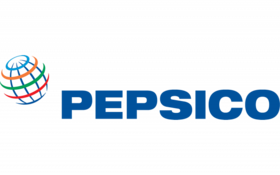
|
PepsiCo and Intuitive AI teamed up to deploy the Oscar Sort AI recycling system across high-traffic US locations, including offices, universities and stadiums. Oscar Sort uses AI to detect materials and guide users in proper recycling, aiming to improve recycling accuracy and waste diversion. It provides real-time feedback and educates consumers with an interactive experience, encouraging better disposal habits. The partnership supports PepsiCo’s sustainability strategy, pep+ Partners for Tomorrow, by enhancing transparency and circularity in material recovery. [Image Credit: © PepsiCo]
|
